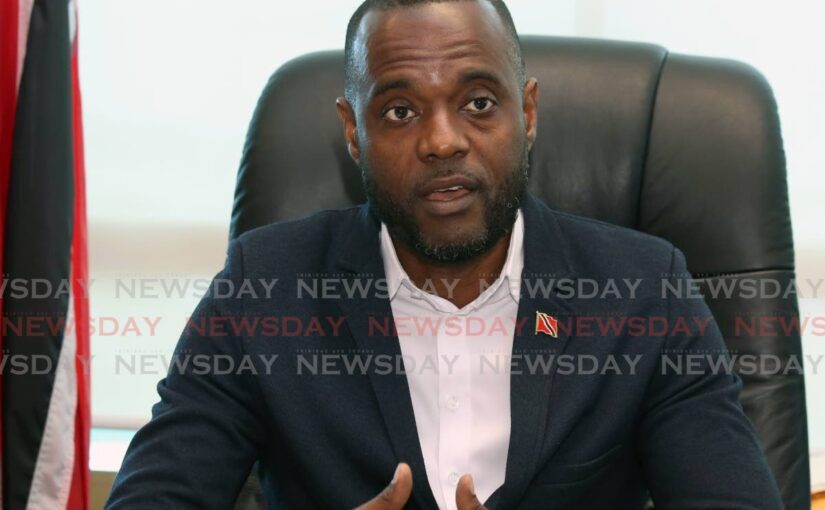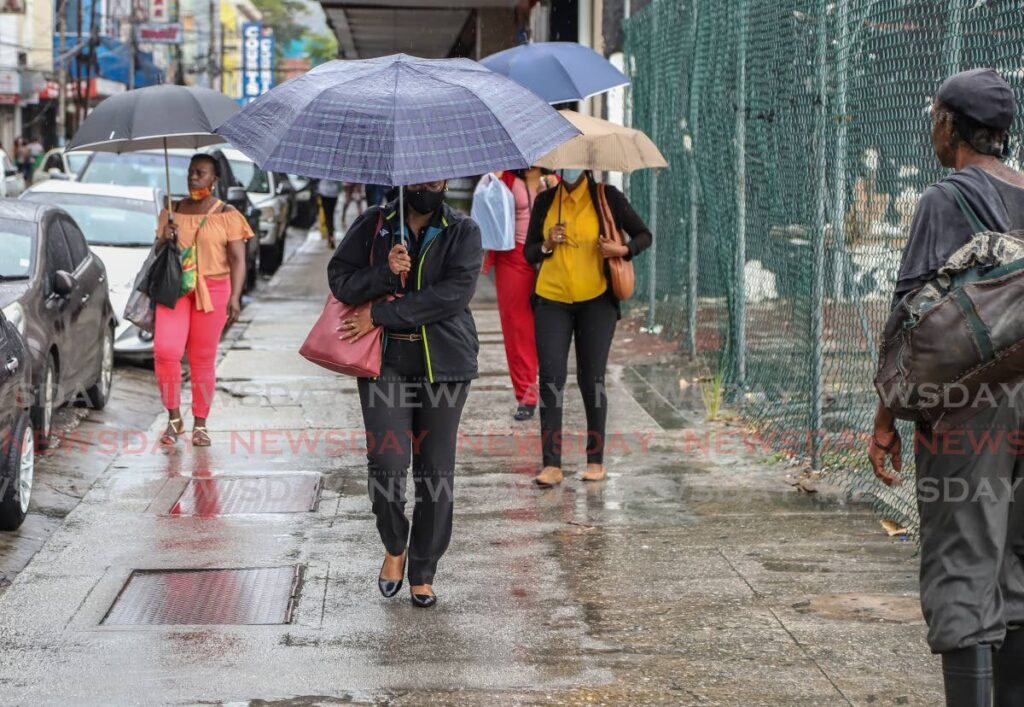RIC’s rate review for WASA focuses on fair pricing, improved service
Written by reggietnt868radio on November 17, 2024

The Regulated Industries Commission (RIC) is currently reviewing a rate increase request from the Water and Sewerage Authority (WASA).
In October, Minister of Public Utilities Marvin Gonzales hinted at a potential rate increase, suggesting that such a measure is necessary for WASA to become financially self-reliant and reduce its dependence on government support.
Speaking with Newsday, Gonzales confirmed a proposal for a rate adjustment had been submitted to the RIC for a decision.
Following this, Newsday spoke with the acting outgoing CEO of WASA Kelvin Romain, who provided an update on the authority’s ongoing efforts to address water supply challenges, improve infrastructure and enhance customer engagement. Romain also discussed several planned projects aimed at strengthening water security in response to the growing impact of climate change on TT’s water resources.
Driselle Ramjohn, the commission’s corporate communications manager, told Newsday that the commission’s review process is available online for everyone.
The document “Framework & Approach for the Price Review: Water and Wastewater Sectors 2021-2026” explains the steps to decide if a price increase will be approved. It says the RIC’s main goal is to ensure the price increase allows WASA to generate enough money to fund its projects without making rates too high for customers.
The proposal is based on an incentive-based price cap, which would be the first for WASA. The last rate review was in 1993. Before any increase is approved, WASA must first submit a detailed business plan showing financial forecasts for capital and operational expenses, revenue needs, and project costs.
The plan should also include a breakdown of expected revenues and investments, as well as strategies to reduce water losses and improve service quality.
WASA must propose its preferred pricing method, explain why it was chosen and describe how the new pricing will affect different customer groups, especially vulnerable ones. WASA must also show how the new pricing structure will encourage efficiency, prevent monopoly profits, and ensure fair pricing for consumers.
The business plan should include cost allocation, tariff rebalancing and the structure of water tariffs. This could involve volumetric pricing (like increasing block tariffs) or non-volumetric charges (such as fixed fees for unmetered users). It should also propose ways to improve operational and capital spending efficiency, with comparisons to industry standards.
Once the RIC reviews and approves the plan, WASA will be required to submit annual reports to track progress on service quality and financial goals. If WASA fails to meet targets, actions can be taken, according to the RIC.
RIC’s review process involves multiple stages, including feedback from the commission and consultations with stakeholders, as well as consumer groups, to ensure public input is considered.
It says WASA, being the sole water provider, presents a challenge as the authority has no incentive to push for better services. In an effort to address this, the RIC proposes creating an incentive for service improvements, which considers factors like service quality, inflation, efficiency and productivity.
The commission has three options: a revenue cap, a price cap, or a hybrid model.
A revenue cap ensures WASA’s total revenue is limited, with adjustments only for inflation and productivity.
A price cap limits the prices for individual services, while a hybrid model combines both approaches. The RIC will use its experience with T&TEC’s regulation to help decide.
The commission is considering a five-year regulation period to encourage long-term efficiency but this may be difficult owing to issues of water leakage and unreliable data. The commission says using mechanisms like the Performance Incentive Mechanism (S-Factor) and the
Guaranteed Service Level (GSL) schemes WASA’s revenue will depend on its performance and meeting targets.
The RIC is also considering whether WASA should earn a return on its working capital for long-term financial stability. It is also exploring ways to encourage long-term efficiency, such as letting WASA keep any cost savings, which it believes would motivate better financial management and service quality.
The post RIC’s rate review for WASA focuses on fair pricing, improved service appeared first on Trinidad and Tobago Newsday.




